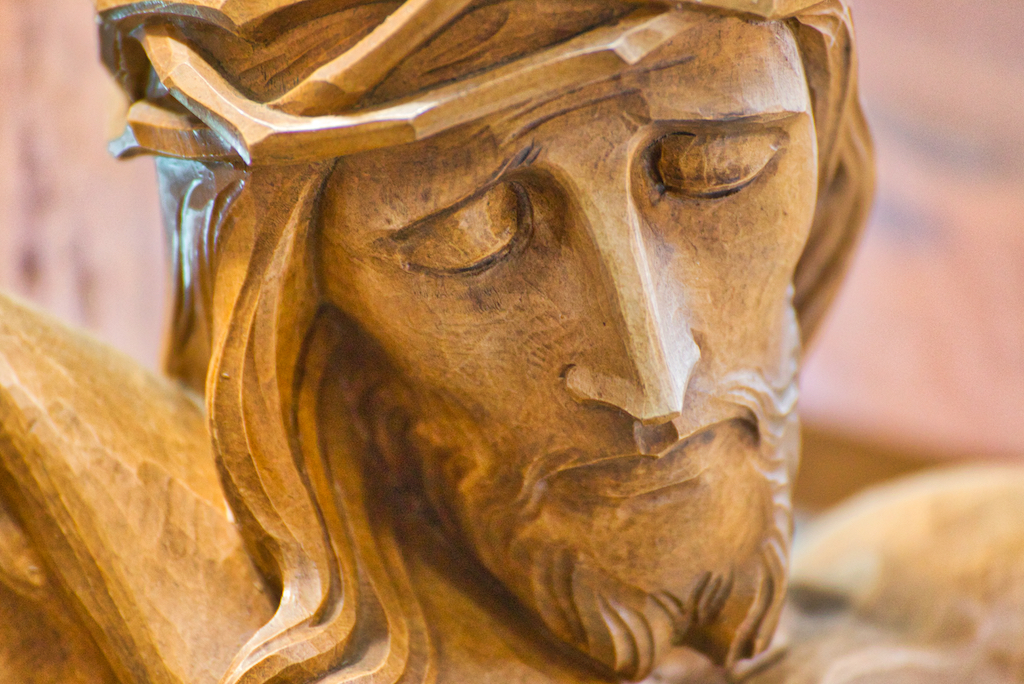Easter is a time of reflection, hope, and profound gratitude. It is the celebration of Christ’s victory over sin and death, yet it is also a poignant reminder of the depth of God’s sacrificial love. As we meditate on the events leading to the cross, we see not only the physical suffering of Jesus but also the immense grief and heartbreak of a God who willingly placed Himself in a losing situation so that we could win. This is divine love—a love that transcends comprehension and invites us into its healing embrace.

A God Who Knows Grief
The image of Jesus on the cross often evokes thoughts of physical pain—the nails, the crown of thorns, the lashes. But the cross also represents a deeper kind of anguish: the grief of rejection, betrayal, and the weight of humanity’s sin. Isaiah 53:3 describes the Messiah as “a man of sorrows, acquainted with grief.”
Jesus’ grief was not abstract; it was deeply personal. He wept over Jerusalem, mourning the city’s unwillingness to turn to God (Luke 19:41). He lamented the betrayal of Judas, one of His closest followers. And in His moment of greatest anguish, He cried out from the cross, “My God, my God, why have you forsaken me?” (Matthew 27:46). This was not just the cry of physical pain but the heartbreak of bearing the separation from the Father that our sin demanded.
Divine Love in a Losing Situation
From a human perspective, the cross seems like the ultimate defeat. The Son of God, humiliated, beaten, and executed, appears to be the victim of evil’s triumph. But in this “losing situation,” God’s love shines most brightly.
Jesus willingly endured the cross, not because He was powerless to escape, but because His love for us compelled Him to stay. Philippians 2:7-8 reminds us that He “emptied himself, by taking the form of a servant… He humbled himself by becoming obedient to the point of death, even death on a cross.” In losing everything—His life, His dignity, His fellowship with the Father—Jesus secured our victory over sin and death.
This self-sacrificial love is the very essence of God’s heart. As Romans 5:8 declares, “But God shows his love for us in that while we were still sinners, Christ died for us.” Easter is not about a God who conquered through power but about a God who conquered through surrender. This is divine love: putting Himself in the ultimate losing position so we could gain eternal life.
A Love That Understands Our Pain
As we consider the grieving, hurting God revealed at Easter, we find profound comfort. The God who suffered understands our own grief and pain. When we feel rejected, He remembers the betrayal of Judas. When we mourn, He recalls the tears He shed at Lazarus’s tomb. When we feel abandoned, He knows the agony of the cross.
Hebrews 4:15 assures us, “For we do not have a high priest who is unable to sympathize with our weaknesses, but one who in every respect has been tempted as we are, yet without sin.” The cross reveals a God who not only sees our pain but shares in it—and ultimately redeems it.
Responding to Divine Love
Easter invites us to respond to God’s sacrificial love with humility and gratitude. It calls us to trust in His ability to bring beauty from ashes and victory from apparent defeat. The grief and heartbreak of the cross are not the end of the story. Three days later, the tomb was empty, and the risen Christ proclaimed the ultimate victory of love.
As we celebrate Easter, let us remember the grieving, hurting God who gave everything for us. Let the image of Christ’s sorrowful yet resolute face remind us of the depth of His love. And let us carry this truth in our hearts: God’s love meets us in our pain, redeems our brokenness, and offers us eternal hope.
A Closing Reflection
Take a moment to gaze upon the image of Jesus. Notice the sorrow etched in His features, the pain of a heart burdened by love. This is the face of a God who grieved so that we could rejoice, who lost so that we could win. This is divine love. And this is Easter.
May this season fill you with awe and gratitude for the incredible love of our grieving, hurting God.






